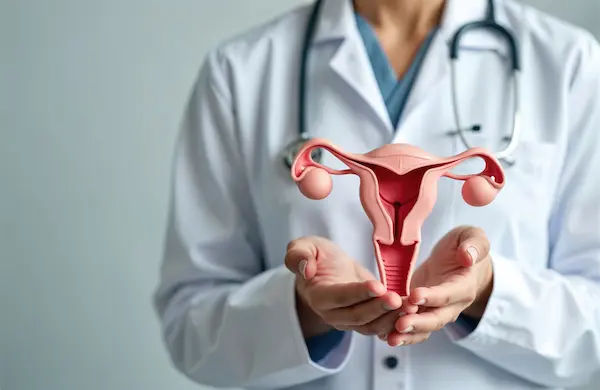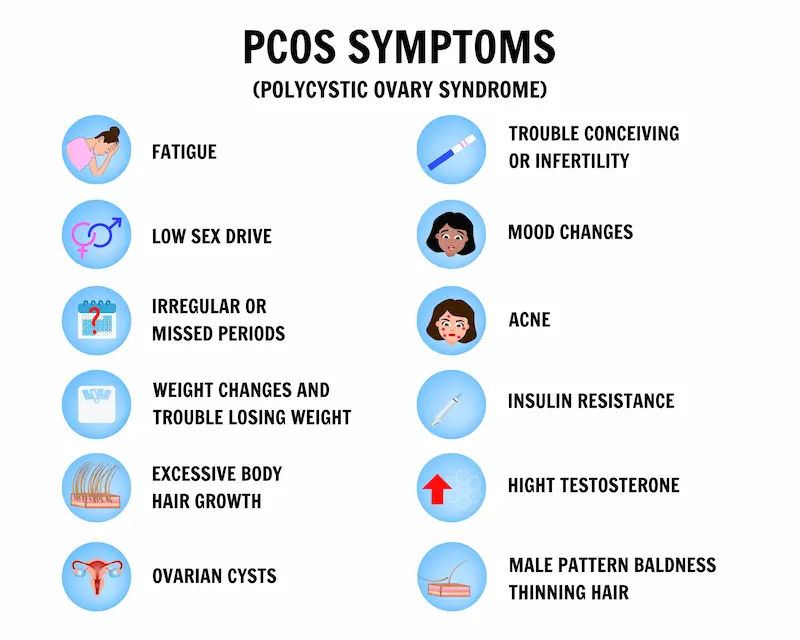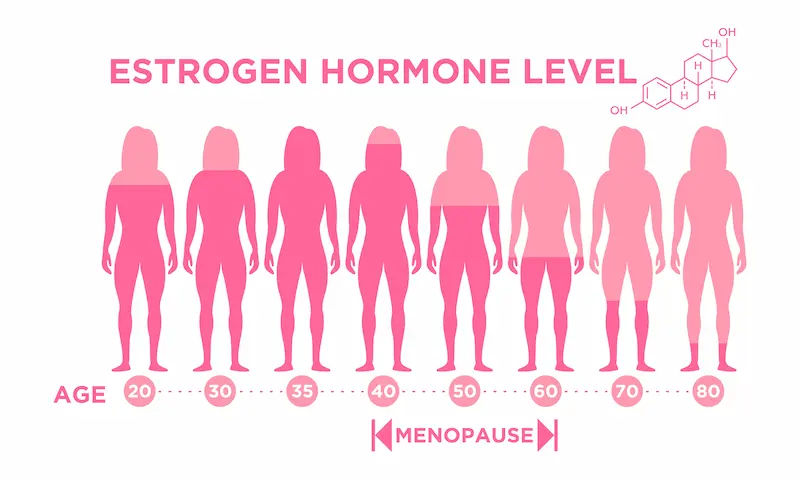Infertility Myths and Facts: A Compassionate Guide
Know about infertility, understanding it in details, myths surrounding it, debunking myths and more.

Written by Dr. J T Hema Pratima
Reviewed by Dr. Dhankecha Mayank Dineshbhai MBBS
Last updated on 13th Jan, 2026

Introduction
The journey toward parenthood can be one of life's most profound experiences, but for many, it's paved with unexpected challenges and a whirlwind of information—and misinformation. Infertility, defined as the inability to conceive after a year of unprotected intercourse (or six months for women over 35), affects millions of couples worldwide. Yet, it remains shrouded in stigma, silence, and pervasive myths that can lead to unnecessary guilt, shame, and delayed treatment. Our goal is to empower you with knowledge, reduce the burden of blame, and outline a realistic path forward, because understanding the truth is the first step toward effective action.
Understanding Infertility: The Baseline Facts
Before we debunk the myths, it's crucial to establish a foundation of what infertility actually is from a medical perspective.
What is Infertility? A Medical Definition
Infertility is a disease of the male or female reproductive system, characterized by the failure to achieve a pregnancy after 12 months or more of regular, unprotected sexual intercourse. It's important to frame it as a medical condition, not a personal failing. Primary infertility refers to couples who have never conceived, while secondary infertility affects those who have conceived in the past but are unable to do so again.
Consult a Top Gynaecologist for Personalised Advice
The Shared Journey: Male vs. Female Factor Infertility
One of the most significant facts that dispels the biggest myth is the distribution of causes. Infertility is not one-sided. According to the World Health Organization (WHO) and leading reproductive societies, the causes of infertility can be broken down approximately as follows:
Female factor: 30-40%
Male factor: 30-40%
Combined factors (both partners): 15-20%
Unexplained infertility: 10-15%
This statistic alone highlights that infertility is a shared challenge, requiring evaluation and support for both partners.
Debunking Common Infertility Myths
Let's tackle the most common misconceptions head-on, replacing them with factual, science-based information.
Myth 1: Infertility is Primarily a "Woman's Problem"
This is perhaps the most damaging and persistent myth. For generations, societal pressure and lack of awareness have placed the burden of conception solely on women.
The Fact: A Closer Look at the Statistics
As the data above shows, male factor infertility is just as common as female factor. Causes can range from low sperm count or poor sperm motility to morphological issues (abnormal shape) or hormonal imbalances. A thorough evaluation for infertility must include a semen analysis for the male partner—it is a non-invasive, crucial first step. Assuming the issue lies only with the woman can lead to prolonged, unnecessary, and invasive treatments for her while overlooking a treatable condition in her partner.
Myth 2: You're Too Young for Infertility Issues
Many young couples believe that as long as they are in their 20s or early 30s, fertility is a given. While age is a dominant factor, particularly for women, it is not an absolute guarantee.
The Fact:
While female fertility peaks in the early 20s and declines more rapidly after 35, conditions like Polycystic Ovary Syndrome (PCOS), endometriosis, blocked fallopian tubes, or issues like premature ovarian insufficiency can affect women of any age. Similarly, young men can experience infertility due to varicoceles (enlarged veins in the scrotum), genetic conditions, or past medical treatments. If you are under 35 and have been trying to conceive for a year without success, it is medically appropriate to seek an evaluation.
Myth 3: Stress is the Main Cause of Infertility
Well-meaning friends or family might advise, "Just relax and it will happen." This places an unfair burden on individuals, implying their emotional state is the primary obstacle.
The Fact
While chronic, severe stress can potentially disrupt ovulation and hormonal balance, it is rarely the sole cause of infertility. The vast majority of infertility cases are due to identifiable physiological causes like those mentioned above. Furthermore, the diagnosis of infertility itself is incredibly stressful, creating a vicious cycle. Telling someone to "relax" minimizes their medical reality. Managing stress is excellent for overall well-being, but it is not a substitute for medical diagnosis and treatment.
Myth 4: If You Already Have a Child, You Can't Be Infertile
This myth leads to a particularly isolating experience known as secondary infertility.
The Fact
Secondary infertility is the inability to conceive or carry a pregnancy to term after previously giving birth. Causes can include developing new conditions like endometriosis or fibroids, changes in sperm quality, age-related decline, or complications from a previous pregnancy or surgery. The emotional impact is unique, as couples often feel their grief is invalidated because they are already parents.
Myth 5: Lifestyle Changes Alone Can Always "Cure" Infertility
Adopting a healthy lifestyle—maintaining a balanced diet, exercising moderately, avoiding smoking and excessive alcohol—is beneficial for fertility and general health. However, it is not a panacea.
The Fact
For underlying medical conditions like blocked tubes, severe endometriosis, or very low sperm count, lifestyle changes, while helpful, cannot reverse the primary issue. They can improve the success rates of treatments like IVF, but they are not a standalone cure. Viewing lifestyle as the only solution can delay necessary medical interventions. If your condition does not improve after trying these methods, it's crucial to consult a specialist. You can book a physical visit to a doctor with Apollo24|7 to discuss your specific situation.
Myth 6: IVF is a Guaranteed Solution for Everyone
In-Vitro Fertilization (IVF) is a powerful assisted reproductive technology, but media portrayals often make it seem like an infallible magic bullet.
The Fact
IVF success rates are highly dependent on factors like the woman's age, the cause of infertility, and the clinic's expertise. For example, according to the Society for Assisted Reproductive Technology (SART), the live birth rate per IVF cycle for a woman under 35 is around 55%, but this drops significantly for women over 40. IVF is a demanding process—emotionally, physically, and financially—and it does not guarantee a baby. It's one of several options, including IUI (Intrauterine Insemination), that a specialist might recommend based on the diagnosis.
The Emotional Toll: Beyond the Physical Myths
The myths surrounding infertility extend beyond medical inaccuracies to emotional ones. The idea that you should "just adopt and then you'll get pregnant" or that you're not a "real" family without biological children can be deeply hurtful. Infertility is a legitimate source of grief and stress. Acknowledging this emotional impact is as important as addressing the physical aspects. Seeking support from a therapist or a support group can be invaluable.
When to Seek Help: Your Action Plan
Knowing when to seek professional help is key. The general guideline is to see a fertility specialist if:
You are under 35 and have not conceived after one year of regular, unprotected sex.
You are 35 or older and have not conceived after six months.
You have known medical conditions that could affect fertility (e.g., irregular periods, PCOS, endometriosis, history of PID, or prior cancer treatment).
You have had two or more miscarriages.
A specialist, such as a reproductive endocrinologist, will conduct a systematic evaluation of both partners to identify any causes and recommend a personalized treatment plan. If you're experiencing symptoms like irregular cycles or have concerns about your fertility, consulting a doctor online with Apollo24|7 can be a great first step for a preliminary discussion.
Conclusion
Navigating the world of infertility is challenging enough without the added weight of myths and misconceptions. By replacing fiction with fact, we can foster a more supportive and informed environment for those on this path. Remember, infertility is a shared medical challenge that requires compassion, teamwork, and evidence-based care. You are not alone, and blame has no place in this equation.
The most empowering step you can take is to seek accurate information and professional guidance. If you have concerns, don't hesitate to reach out to a healthcare provider. A clear understanding of your unique situation is the most powerful tool you have. Take that first step today—your journey deserves to be guided by truth and support.
Consult a Top Gynaecologist for Personalised Advice
Consult a Top Gynaecologist for Personalised Advice

Dr Jaya Kumar Agarwal
Obstetrician and Gynaecologist
25 Years • MBBS , DGO , DNB (obstetric and gynecology) DGE diploma in Gyne endoscopy (Germany )
Delhi
Apollo Hospitals Indraprastha, Delhi

Dr. Vinita Sharma
Obstetrician and Gynaecologist
15 Years • MBBS, MD, MRCOG
Noida
Apollo Hospitals Sector 26, Noida
(75+ Patients)

Dr. Vidya Konduri
Obstetrician and Gynaecologist
9 Years • MS
Chinagadila
Apollo Hospitals Health City Unit, Chinagadila
(50+ Patients)

Dr. Swetha P
Obstetrician and Gynaecologist
11 Years • MBBS, MS(OBGY)
Hyderabad
Apollo Hospitals Jubilee Hills, Hyderabad
(50+ Patients)
Dr.kavitha M
Obstetrician and Gynaecologist
10 Years • MBBS.,MS.OG
Tiruchirappalli
Apollo Speciality Hospitals Old Palpannai, Tiruchirappalli




